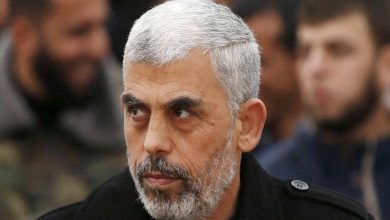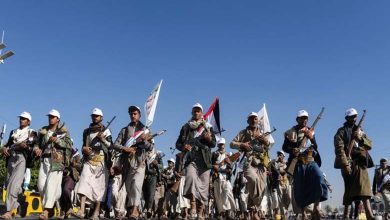An Iraqi-Turkish agreement to resume re-exporting Kurdish oil through the Ceyhan Port

The resumption of oil re-exportation is expected to compensate for some of the significant losses caused by the decision to halt the Turkish global pipeline. Transporting oil through the pipeline is cheaper, safer, and more secure than using trains and tankers.
Iraqi Oil Minister Ihsan Abdul Jabbar mentioned on Sunday that he expects an agreement with the Kurdistan Regional Government and foreign oil companies to resume oil production from the region’s fields within three days and export it through the Turkish port of Ceyhan after reaching an agreement with Turkey.
Abdul Jabbar, during a visit to Erbil, the capital of the semi-autonomous region, stated that Iraq had reached an understanding with Turkey regarding the resumption of northern oil exports through the Iraq-Turkey pipeline.
Exports of oil from the Kurdistan Region and Kirkuk Governorate through the Ceyhan Port halted after the Federal Government won a ruling on March 25, 2013, which they presented before the International Chamber of Commerce in Paris.
As a result, Turkey stopped the flow of 450,000 barrels per day from northern Iraq via the pipeline connecting the two countries, after the Chamber ordered Ankara to pay approximately $1.5 billion in compensation to Baghdad for unauthorized exports by the Kurdistan Regional Government between 2014 and 2018.
The resumption of oil re-exportation is expected to compensate for some of the significant losses caused by the decision to halt the Turkish global pipeline. Transporting oil through it is cheaper, safer, and more secure than trains and tankers.
During a visit by the Turkish delegation to Baghdad in August, several conditions were proposed to resume oil exports, including the cost of oil transportation as well as the withdrawal of the complaint filed to the International Court.
Abdul Jabbar and senior federal oil officials began meetings with officials from the Kurdish Ministry of Natural Resources and high-level energy officials in the Kurdistan Region to discuss the situation. He told journalists, “The purpose of this visit is to resolve all issues that facilitate the process of oil production and export.” He added, “The first step is to agree with companies and the region to adapt these existing contracts to comply with the Iraqi constitution.”
Government officials working in the Iraqi oil sector met with representatives from the Kurdistan Oil and Gas Industry League (ABIKOR) for the first time last Wednesday to discuss the resumption of exports to Turkey.
The league comprises global oil and gas companies with a direct or indirect interest in oil and gas contracts in the Kurdistan Region of Iraq. Many of these companies were forced to halt production due to the pipeline closure.
On the other hand, the Kurdistan Region’s Prime Minister, Masrour Barzani, affirmed that the cessation of the region’s oil exports caused the Iraqi state treasury billions of dollars in losses. He emphasized the region’s readiness to resume oil exports within a mutual understanding to meet the financial and technical requirements for the export process, within the framework of constitutional principles and contracts, respecting the constitutional rights of all parties and finding a suitable solution to provide the expenses due for the transportation and production of the region’s oil specified in the federal budget. He added that the cessation of oil exports resulted in billions of dollars in losses for the state’s public treasury and should be resumed as soon as possible.
President of the region’s government instructed the Minister of Natural Resources to coordinate fully with the Federal Oil Ministry team, which is expected to stay in Erbil for several days.
The ministries also decided to continue discussing and exchanging legal, financial, and technical details to provide solutions through a mutual understanding for the resumption of oil exports as soon as possible, a move that will significantly increase the overall financial revenues of Iraq and the region, which will be spent in the public interest.
In October last year, the Iraqi Oil Ministry announced that the financial revenues generated from exports in September amounted to more than $9 billion.
The ministry stated in a release that “the total quantity of crude oil exports according to preliminary statistics issued by the Iraqi Oil Marketing Company ‘SOMO’ reached approximately 103 million barrels, with revenues amounting to $9.5 billion.”
The ministry further explained that “the total exported quantities of crude oil for September from the oil fields in central and southern Iraq reached about 102 million barrels, while the quantities exported to Jordan were around 450,000 barrels, with exports from the Qayyarah region at 473,000 barrels.”
It noted that “the daily exported quantity rate reached 3.4 million barrels per day, with the average price per barrel being $92.”












